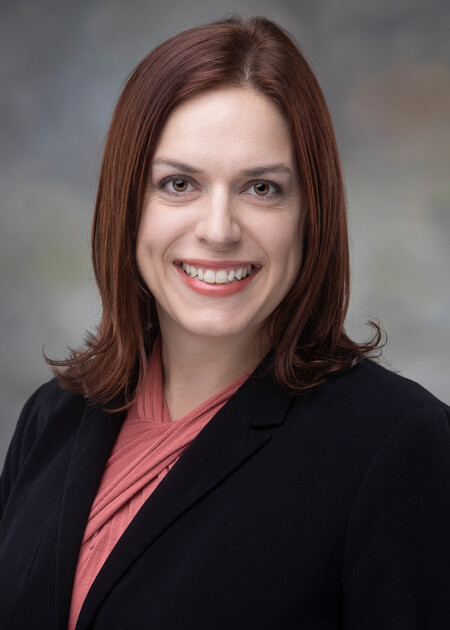
Megan Lippe, PhD, MSN, RN, associate professor at The University of Texas Health Science Center at San Antonio School of Nursing, will be inducted into the American Academy of Nursing’s and the National League for Nursing’s Academy of Nursing Education’s Class of Fellows this fall.
These highly prestigious recognitions are due to her “substantial, sustained and outstanding impact on health and health care” and her “enduring and substantial contributions to nursing education,” respectively.
Palliative nursing care education has risen as a priority since 2021, following an update of the American Association of Colleges of Nursing’s (AACN) Essentials, which established four spheres of care, one of which focuses on hospice, palliative and supportive care as essential to teach within nursing curricula.
It is for this type of nursing care that Lippe and her research partner Andra Davis, PhD, have emerged as national leaders. Nursing educators of many academic institutions were faced with the challenge of quickly updating palliative care instruction “from good to know to need to know,” Lippe said.
Nurses are essential to delivering holistic, culturally sensitive care for patients with serious illnesses or injuries, beginning at diagnosis through to death, Lippe explained. Both entry- and advanced-level nurses are expected to anticipate and respond to the physical, psychological, social and spiritual needs that enhance the quality of their patient’s life, as well as that of their families and caregivers.
Steering the change in academia, Lippe led a team of national experts to revise the palliative care competence guidelines for undergraduate and graduate nursing students, known as “Competencies And Recommendations for Educating nursing Students,” CARES and G-CARES, respectively.
The list of competency statements is used across the nation as a teaching framework for nursing educators and have been endorsed by the End-of-Life Nursing Education Consortium (ELNEC) and the AACN.
Additionally, a partnership Lippe has with ELNEC has yielded a number of free educational toolkits and resources for nursing educators to use in order to align with the updated Essentials. “We’ve created information they can take and run with, rather than re-inventing the wheel,” she said.
The free resources are available on the ELNEC Faculty Corner as well as access to free monthly webinars about palliative nursing care education and features on exemplary palliative nursing educators.
Lippe and Davis have also evaluated student learning, examining their knowledge and perceived competence, and have developed a competency assessment tool to identify gaps in students’ ability to provide palliative care to seriously ill patients and their families. Lippe and Davis’ collective body of work offers new strategies for academic institutions to incorporate palliative care instruction within their curriculum without completely restructuring it.
“It’s a great honor,” Lippe said of her upcoming inductions. “It’s one of those things where you do the hard work, do the research, submit the grants and see that it’s not in vain — it’s making a difference.”
Lippe joined the School of Nursing faculty in 2021. She has been a registered nurse since 2009 and earned her Bachelor of Science in Nursing, Master of Science in Nursing and doctoral degree from The University of Texas at Austin.


